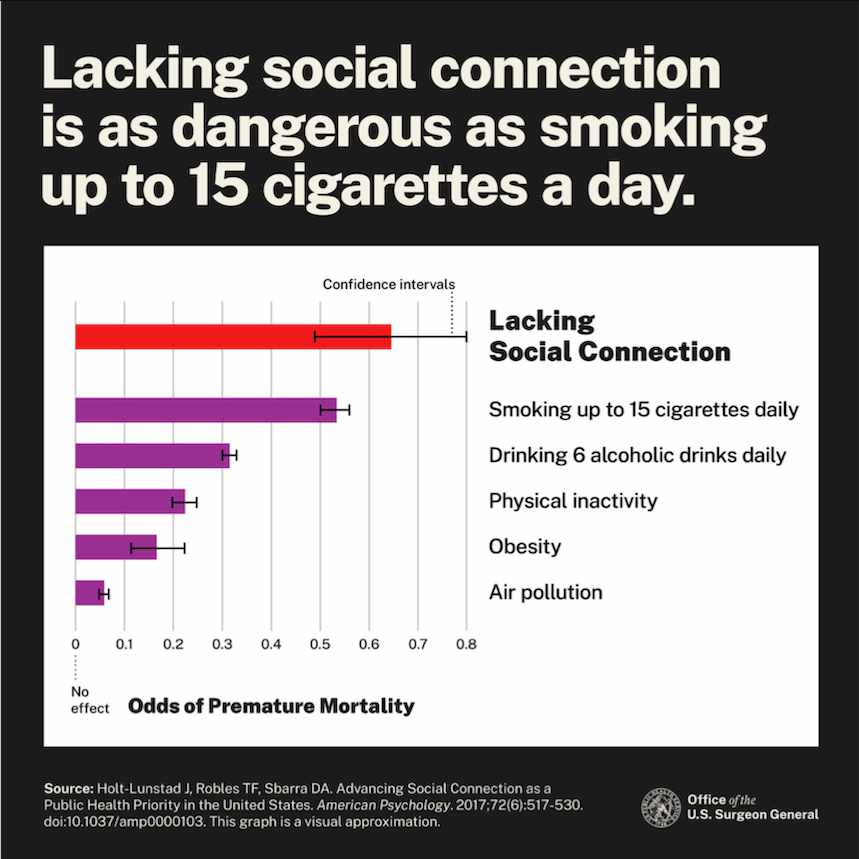Loneliness is a silent epidemic and its effects are particularly devastating for senior citizens. The U.S. Surgeon General’s Advisory, “Our Epidemic of Loneliness and Isolation,” highlights that social connection is as crucial to our well-being as food and water. This is especially true for older adults, who are at an increased risk of social isolation, which in turn can lead to a host of health problems, from heart disease to a more rapid progression of dementia.
The Dangers of Isolation
The Surgeon General’s report emphasizes that a lack of social connection can be as dangerous as smoking 15 cigarettes a day. For seniors, this can manifest in a variety of ways, including an increased risk of heart disease, stroke, and mental health issues like depression and anxiety. Furthermore, chronic loneliness in older adults can increase the risk of developing dementia by approximately 50%. The report calls for a societal shift in how we view
and foster social connections, urging individuals, communities, and organizations to work together to combat
this public health crisis.

Socializing for a Sharper Mind
Research has consistently shown a strong link between social interaction and cognitive health. Engaging in social
activities helps to build “cognitive reserve,” which is the brain’s ability to withstand age-related changes and disease.
Regular social engagement can stimulate the brain, helping to delay the onset of dementia and slow the progression
of memory related disorders such as Alzheimer’s disease. Even something as simple as a 10-minute conversation each day can significantly improve the well-being of a person with dementia. For those with Alzheimer’s, social interaction can help to improve their mood, reduce agitation, and even improve their communication skills.
The Rural Reality
For senior citizens living in rural areas, the challenges of loneliness are often magnified. The lack of public transportation, the greater distances between neighbors, and the out-migration of younger generations can make it difficult for older adults to stay socially connected.By understanding the profound effects of social isolation and taking steps to foster greater social connection, each of us can help our elders live longer, healthier, and more fulfilling lives.
To combat loneliness in our communities, CHEER offers many options for seniors, their caregivers and volunteers.
For those wishing to volunteer:
• Make a phone call to a senior once per week. CHEER is implementing an innovative program that is based on its former “Phone-a-Friend” program. This new program is called “Kindness Calls”.
• Join CHEER’s volunteer driver program to provide transportation for CHEER members to medical appointments.
For seniors looking for opportunities to interact with others:
• Visit one of CHEER’s senior activity centers. For $30 per year, any Sussex resident age 50 or older can join CHEER.
Members have access to the eight centers where they will receive a hot meal, enjoy their choice of several ways to meet new people, and socialize over games such as Bingo and Uno, take local trips, enjoy music, arts and crafts, use
the gym on site, and more!
• For those with memory-related needs seniors can attend “Memory Café” while their caregiver attends a support group.
• For those with Alzheimer’s and other memory-related conditions who need a supervised setting that provides stimulation and activities, consider CHEER’s Adult Day Program which also provides respite for the caregiver.
• Seniors needing assistance with housekeeping, grooming, or companionship should explore CHEER’s PASA program!
For more info:
Learn more about CHEER Centers, Memory Café, Adult Day Program, PASA and volunteering at www.cheerde.com or by calling (302) 515-0001.

 Oh, My Aching…
Oh, My Aching…